In the January 2013 Newsletter, Lynn K. Nyhart reminded the society of the importance of fostering relationships with historians of science outside of academia. Together with the Early Career Caucus, and our colleagues Tania Munz and Carin Berkowitz, who developed a group within HSS for historians of science working outside the academy (HSS at Work), the women's caucus believes it is important to highlight the many careers outside of tenure-track professorships which can be pursued with history of science degrees.
Below are some biographies of women historians of science who have enjoyed successful careers outside of tenure-track positions. Thank you to all who contributed!
Georgina M. Montgomery & Constance Clark (HSS Women's Caucus Co-Chairs, 2012-2013)
Below are some biographies of women historians of science who have enjoyed successful careers outside of tenure-track positions. Thank you to all who contributed!
Georgina M. Montgomery & Constance Clark (HSS Women's Caucus Co-Chairs, 2012-2013)
Dr. Catherine Westfall
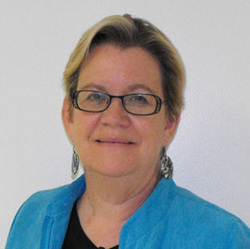
Catherine Westfall received her BA in Asian Studies from the University of California in 1974 and worked for the next several years as a science writer at Lawrence Berkeley National Laboratory. At the laboratory she met her husband, Gary Westfall, and followed him in 1981 to East Lansing, where he became a professor at Michigan State University. She took the opportunity to go back to graduate school. As a graduate student she travelled to Los Alamos National Laboratory to write (with co-authors) a history of the development of the first atomic bombs. In 1988 she received a Ph.D. in American Studies with a specialty in American History of Science, writing her dissertation on the founding of Fermi National Accelerator Laboratory. After a year of teaching at Lyman Briggs College, she received a National Science Foundation grant to write (with co-authors) a history of Fermi National Accelerator Laboratory. While pregnant with her son, Forrest, laboratory director Hermann Grunder offered her a contract to research the history of the Thomas Jefferson National Accelerator Facility (Jlab). She telecommuted (and traveled several times a year) to Newport News Virginia for ten years and completed several articles on JLab history. (Due to flexible hours and preponderance of work at home, this arrangement worked well with parenting.) In 2001 she followed Grunder to Argonne National Laboratory, where she headed a history group for several years. During this period (when her son was older) she still telecommuted but travelled more often (she spent about 9 weeks a year at the laboratory.) When funding for her program was cut in 2006, she began teaching again at Lyman Briggs College. In 2012 JLab director Hugh Montgomery offered her another contract to write JLab history. Presently she works on this contract part-time, while teaching part-time at Lyman Briggs College.
My list of skills: follow your passion, think outside the box, use your people skills to negotiate a deal, and never give up.
My list of skills: follow your passion, think outside the box, use your people skills to negotiate a deal, and never give up.
Dr. Margaret A. Weitekamp
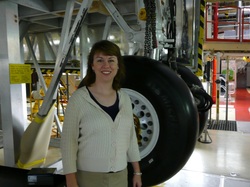
Margaret A. Weitekamp, Ph.D., is a curator in the Space History department at the Smithsonian’s National Air and Space Museum. She oversees over 4000 individual pieces of space memorabilia and space science fiction objects, including toys and games, clothing and stamps, medals and awards, and buttons and pins, as well as comics and trading cards. These everyday mementos of the space age complete the story about spaceflight told by the Museum's collection of space hardware and technologies. In 2009, she acquired for the Smithsonian an eight-foot lighted turning star from the entrance sign for Astroland, a space-themed amusement park in Coney Island, Brooklyn that opened in 1962 and ceased operations in 2008.
She is the author of Pluto’s Secret: An Icy World’s Tale of Discovery (Abrams Books for Young Readers, 2013), written with David DeVorkin and illustrated by Diane Kidd, and co-editor with Anne Collins Goodyear of the ninth volume in the Artefacts series on the material culture of science and technology, Analyzing Art and Aesthetics (Smithsonian Institution Scholarly Press, 2013). Her book Right Stuff, Wrong Sex: America's First Women in Space Program (Johns Hopkins University Press, 2004; paperback 2006), won the Eugene M. Emme Award for Astronautical Literature from the American Astronautical Society. She is currently developing a new book project, a social and cultural history of space memorabilia.
She earned a B.A. at the University of Pittsburgh and a Ph.D. at Cornell University. During her graduate work, she was a Mellon fellow in the humanities and also spent a year in residence at the NASA Headquarters History Office in Washington, D.C. as the American Historical Association/NASA Aerospace History Fellow. Before joining the Smithsonian, Weitekamp taught in the Women's Studies Program at Hobart and William Smith Colleges in Geneva, New York.
In her work at the Museum, Weitekamp sees her job as bringing the insights of current scholarship to the public, whether through a scholarly article, a blog entry, an exhibit, or a public program. To do so, she relies heavily on her academic training, especially the emphasis on critical thinking and strong, direct writing.
She is the author of Pluto’s Secret: An Icy World’s Tale of Discovery (Abrams Books for Young Readers, 2013), written with David DeVorkin and illustrated by Diane Kidd, and co-editor with Anne Collins Goodyear of the ninth volume in the Artefacts series on the material culture of science and technology, Analyzing Art and Aesthetics (Smithsonian Institution Scholarly Press, 2013). Her book Right Stuff, Wrong Sex: America's First Women in Space Program (Johns Hopkins University Press, 2004; paperback 2006), won the Eugene M. Emme Award for Astronautical Literature from the American Astronautical Society. She is currently developing a new book project, a social and cultural history of space memorabilia.
She earned a B.A. at the University of Pittsburgh and a Ph.D. at Cornell University. During her graduate work, she was a Mellon fellow in the humanities and also spent a year in residence at the NASA Headquarters History Office in Washington, D.C. as the American Historical Association/NASA Aerospace History Fellow. Before joining the Smithsonian, Weitekamp taught in the Women's Studies Program at Hobart and William Smith Colleges in Geneva, New York.
In her work at the Museum, Weitekamp sees her job as bringing the insights of current scholarship to the public, whether through a scholarly article, a blog entry, an exhibit, or a public program. To do so, she relies heavily on her academic training, especially the emphasis on critical thinking and strong, direct writing.
Dr. Pamela Henson
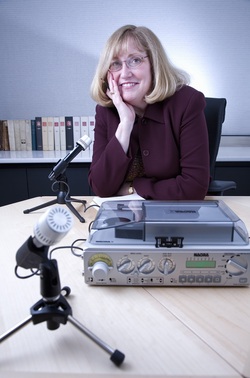
Pamela Henson is Director of the Institutional History Division of the Smithsonian Institution Archives where she is responsible for research, publication, lectures, exhibits and digital outreach on the history of the Institution and for the Oral History Program. She is also Historian in Residence at American University Department of History where she teaches the oral history seminar. She received her Ph.D. in the history and philosophy of science from the University of
Maryland and her B.A. and M.A. in American Studies from The George Washington University. Her research interests concentrate on the history of natural history, the history of tropical biology, the history of museums, the use of visual information in historical research, and the role of women in science. She is contributing to the Smithsonian Civil War volume and has lectured on the effects of the Civil War on the Smithsonian. Recent publications include articles on the use of photographic images in history of science research and on citizen science. She currently has an exhibit on view in the National Museum of Natural History on scientific collecting in the Pacific during World War II, titled When Time and Duty Permit.
As a public historian affiliated with an archives, she uses traditional historical research skills to conduct research in primary sources and to produce scholarly and popular publications and lectures. She has learned to use primary sources in public exhibits and in digital media such as websites, mobile apps, and online conferences. She is trained in oral history methodology and the conservation of analog and digital audio and video. Whether preparing a web page, for a seminar or an online conference with K-12 teachers across the globe, or to video record scientists in the Panamanian jungle, she is constantly challenged to learn new technologies to reach new audiences.
Maryland and her B.A. and M.A. in American Studies from The George Washington University. Her research interests concentrate on the history of natural history, the history of tropical biology, the history of museums, the use of visual information in historical research, and the role of women in science. She is contributing to the Smithsonian Civil War volume and has lectured on the effects of the Civil War on the Smithsonian. Recent publications include articles on the use of photographic images in history of science research and on citizen science. She currently has an exhibit on view in the National Museum of Natural History on scientific collecting in the Pacific during World War II, titled When Time and Duty Permit.
As a public historian affiliated with an archives, she uses traditional historical research skills to conduct research in primary sources and to produce scholarly and popular publications and lectures. She has learned to use primary sources in public exhibits and in digital media such as websites, mobile apps, and online conferences. She is trained in oral history methodology and the conservation of analog and digital audio and video. Whether preparing a web page, for a seminar or an online conference with K-12 teachers across the globe, or to video record scientists in the Panamanian jungle, she is constantly challenged to learn new technologies to reach new audiences.
Dr. Audra J. Wolfe
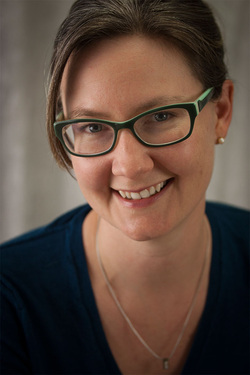
Audra J. Wolfe is a writer, editor, and historian of science based in Philadelphia. Her editorial and publishing consulting company, The Outside Reader, helps authors navigate the sometimes choppy waters of scholarly publishing at all stages of the publishing process, from book proposal to publicity. Prior to founding the company in 2009, she served as Editor-in-Chief of Chemical Heritage Magazine and Associate Director of the Roy Edelman Institute at the Chemical Heritage Foundation (2006–2009), where she also founded an award-winning podcast, Distillations. Her in-house publishing experience includes four years at Rutgers University Press as the acquiring editor for the sciences (2002–2006), and her publishing clients include the University of Chicago Press, the University of Pittsburgh Press, and MIT Press.
Audra’s scholarly interests (Ph.D., University of Pennsylvania, 2002) center on the role of science and technology during the Cold War. Her first book, Competing with the Soviets: Science, Technology, and the State in Cold War America, was published this spring by Johns Hopkins University Press. Her next project, on science as soft diplomacy, has been supported by a recent two-year Scholars’ Grant from the National Science Foundation. Her articles and reviews have appeared in Isis, HSNS, Journal of the History of Biology, Science, American Scientist, C&EN, Chemical Heritage, and the Boston Review.
On skill sets and finding a path: “The trickiest part of leaving the academy has been figuring out the intersection of things I’m good at and things I enjoy. I really love working with book manuscripts—whether my own or someone else’s—and miss them terribly when I’m otherwise occupied. Teaching never thrilled me in the same way. Somewhat to my surprise, starting my own business has given me more time for my own research than I would have with a more traditional academic job. Working for yourself isn’t for everyone, but for me, it’s been a joy.”
Audra’s scholarly interests (Ph.D., University of Pennsylvania, 2002) center on the role of science and technology during the Cold War. Her first book, Competing with the Soviets: Science, Technology, and the State in Cold War America, was published this spring by Johns Hopkins University Press. Her next project, on science as soft diplomacy, has been supported by a recent two-year Scholars’ Grant from the National Science Foundation. Her articles and reviews have appeared in Isis, HSNS, Journal of the History of Biology, Science, American Scientist, C&EN, Chemical Heritage, and the Boston Review.
On skill sets and finding a path: “The trickiest part of leaving the academy has been figuring out the intersection of things I’m good at and things I enjoy. I really love working with book manuscripts—whether my own or someone else’s—and miss them terribly when I’m otherwise occupied. Teaching never thrilled me in the same way. Somewhat to my surprise, starting my own business has given me more time for my own research than I would have with a more traditional academic job. Working for yourself isn’t for everyone, but for me, it’s been a joy.”
Dr. Carin Berkowitz
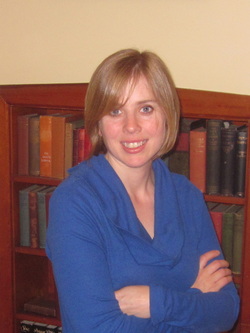
Carin Berkowitz earned her PhD in Science and Technology Studies from Cornell University in 2010, having written a dissertation on medical politics and pedagogy in early nineteenth-century London. She currently works as the Associate Director of the Beckman Center at the Chemical Heritage Foundation (CHF) in Philadelphia. As such, she oversees an ever-growing fellowship program, one that, with 21 fellows in 2013-14, is the biggest independent history of science fellowship program in the country. She also manages the Beckman Center's programming, which includes a weekly talk series, a bi-weekly writing group, bi-annual public lectures by fellows, conference panels made up of fellowship program alumni, an alumni newsletter, and a large international conference organized in collaboration with a prominent historian of science chosen annually. In addition, she teaches for University of Pennsylvania's History and Sociology of Science department.
Hers is a job that brings her into contact with a variety of scholars, as well as with the general public, and that draws on diverse skills--academic, organizational, promotional/marketing, and personal among them. The work is made dynamic and exciting by each new class of fellows, with their particular sets of research topics with which to engage. Positions such as Carin's (whether in independent research libraries, museums, or research organizations) are not anomalous and offer rewarding career paths to academically trained historians. Not having realized while still in graduate school that such an extra-academic world of possibilities existed, Carin has become interested in developing programs with HSS to promote such positions and serve the scholars who consider or accept them. Carin also continues to develop her own scholarship from her position outside the academy. She has been invited to give lectures at medical schools and history of science departments, published in Bulletin of the History of Medicine, BJHS, and Endeavor, and is currently guest-editing a special issue of Bulletin of the History of Medicine on visual culture, material objects and anatomy. She is also working on a book manuscript for University of Chicago Press.
The challenge of working outside the academy, according to Carin, is that "at no time of year can you simply retreat into your own work, and your schedule is not your own. On the other hand, the resources and opportunities available in a job like this one, one that brings me into contact with a wide community of scholars, are considerable."
Hers is a job that brings her into contact with a variety of scholars, as well as with the general public, and that draws on diverse skills--academic, organizational, promotional/marketing, and personal among them. The work is made dynamic and exciting by each new class of fellows, with their particular sets of research topics with which to engage. Positions such as Carin's (whether in independent research libraries, museums, or research organizations) are not anomalous and offer rewarding career paths to academically trained historians. Not having realized while still in graduate school that such an extra-academic world of possibilities existed, Carin has become interested in developing programs with HSS to promote such positions and serve the scholars who consider or accept them. Carin also continues to develop her own scholarship from her position outside the academy. She has been invited to give lectures at medical schools and history of science departments, published in Bulletin of the History of Medicine, BJHS, and Endeavor, and is currently guest-editing a special issue of Bulletin of the History of Medicine on visual culture, material objects and anatomy. She is also working on a book manuscript for University of Chicago Press.
The challenge of working outside the academy, according to Carin, is that "at no time of year can you simply retreat into your own work, and your schedule is not your own. On the other hand, the resources and opportunities available in a job like this one, one that brings me into contact with a wide community of scholars, are considerable."
Dr. Alice Dreger
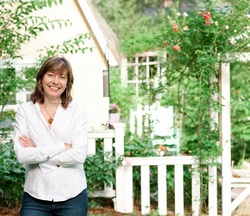
Alice Dreger received her Ph.D. from Indiana University's Department of History and Philosophy of Science in 1995, following a stint as a college-drop-out mortgage broker on Long Island. Her dissertation, funded by a Woodrow Wilson Foundation Charlotte Newcombe Doctoral Dissertation Award, formed the basis of her first book, Hermaphrodites and the Medical Invention of Sex (Harvard, 1998). For almost a decade, she pursued a fairly traditional academic career as an historian of science and medicine, with activist collaboration with the Intersex Society of North America tacked on as a second, unpaid job. In 2004, she published a second book with Harvard (One of Us: Conjoined Twins and the Future of Normal), but she decided around that time, just a couple of years after having a child, that a conventional academic life didn't allow time for what felt most important: patient rights advocacy, mainstream writing, family life, cooking, and afternoon naps.
So Alice gave up her tenured job at Michigan State University, and soon after accepted a small part-time position with the Medical Humanities and Bioethics (MHB) Program at Northwestern University's Feinberg School of Medicine. She still lives in East Lansing, Michigan, and works mostly from a dedicated writing cottage in her backyard. She funds her research and pro bono advocacy work through her academic, speaking, and writing incomes, supplementing with grants as possible. Her work since quitting tenure has been funded by various institutions, including the Provost's Office of Northwestern University and the John Simon Guggenheim Memorial Foundation. That said, all this is feasible chiefly because her spouse, Aron Sousa, a physician and academic administrator at Michigan State University, is willing to be the economically predictable member of the family unit. Aron essentially functions as a patron of Alice's work, and enjoys, in exchange, activist collaborations with Alice, a more satisfying family life, and really good dinners. Alice admits she spends part of every day wondering if this economic arrangement represents the fulfillment of feminism or a tacit resignation to institutionalized gender discrimination. But mostly she feels grateful to have such a meaningful life that is largely under her control in terms of hours, if not in terms of retirement and job security.
Alice has published her research and analyses in a wide variety of academic journals, including, for example, Perspectives in Biology and Medicine, Human Nature, Archives of Sexual Behavior, the New England Journal of Medicine, and Studies in History and Philosophy of Biological and Biomedical Sciences. Her mainstream essays on science, medicine, and life have been published in many newspapers, including The New York Times, The Wall Street Journal, The Washington Post, and the Chicago Tribune. She has a invited blog at Psychology Today and is a contacted writer for the Health section of The Atlantic. Her work has been featured by many press and broadcast outlets, including The New Yorker, the New York Times Magazine, Science, Newsweek, NRP, BBC, CBC, HBO, and the Oprah Winfrey Show. She has given several hundred invited lectures in academic venues, and her TEDx lecture has now been viewed over 360,000 times and been included on a Netflix compilation. She occasionally functions as a guest expert for Dan Savage's "Savage Love" and "Savage Lovecast," and she writes, ghost-writes, and edits material for patient advocacy organizations. She also does private pro-bono medical history recovery for victims of medical trauma. Norton included her essay, "Lavish Dwarf Entertainment," in their 2009 Collection of Best Creative Non-Fiction, and in 2011, UTNE Reader has named her a visionary for her work on intersex. In 2014, Penguin will publish her memoir (of being an intersex activist and conducting investigative histories into controversies involving scientists and identity activists) under the title Galileo's Middle Finger: Heretics, Activists, and One Scholar's Search for Truth. More about her work is available at her personal website, alicedreger.com.
So Alice gave up her tenured job at Michigan State University, and soon after accepted a small part-time position with the Medical Humanities and Bioethics (MHB) Program at Northwestern University's Feinberg School of Medicine. She still lives in East Lansing, Michigan, and works mostly from a dedicated writing cottage in her backyard. She funds her research and pro bono advocacy work through her academic, speaking, and writing incomes, supplementing with grants as possible. Her work since quitting tenure has been funded by various institutions, including the Provost's Office of Northwestern University and the John Simon Guggenheim Memorial Foundation. That said, all this is feasible chiefly because her spouse, Aron Sousa, a physician and academic administrator at Michigan State University, is willing to be the economically predictable member of the family unit. Aron essentially functions as a patron of Alice's work, and enjoys, in exchange, activist collaborations with Alice, a more satisfying family life, and really good dinners. Alice admits she spends part of every day wondering if this economic arrangement represents the fulfillment of feminism or a tacit resignation to institutionalized gender discrimination. But mostly she feels grateful to have such a meaningful life that is largely under her control in terms of hours, if not in terms of retirement and job security.
Alice has published her research and analyses in a wide variety of academic journals, including, for example, Perspectives in Biology and Medicine, Human Nature, Archives of Sexual Behavior, the New England Journal of Medicine, and Studies in History and Philosophy of Biological and Biomedical Sciences. Her mainstream essays on science, medicine, and life have been published in many newspapers, including The New York Times, The Wall Street Journal, The Washington Post, and the Chicago Tribune. She has a invited blog at Psychology Today and is a contacted writer for the Health section of The Atlantic. Her work has been featured by many press and broadcast outlets, including The New Yorker, the New York Times Magazine, Science, Newsweek, NRP, BBC, CBC, HBO, and the Oprah Winfrey Show. She has given several hundred invited lectures in academic venues, and her TEDx lecture has now been viewed over 360,000 times and been included on a Netflix compilation. She occasionally functions as a guest expert for Dan Savage's "Savage Love" and "Savage Lovecast," and she writes, ghost-writes, and edits material for patient advocacy organizations. She also does private pro-bono medical history recovery for victims of medical trauma. Norton included her essay, "Lavish Dwarf Entertainment," in their 2009 Collection of Best Creative Non-Fiction, and in 2011, UTNE Reader has named her a visionary for her work on intersex. In 2014, Penguin will publish her memoir (of being an intersex activist and conducting investigative histories into controversies involving scientists and identity activists) under the title Galileo's Middle Finger: Heretics, Activists, and One Scholar's Search for Truth. More about her work is available at her personal website, alicedreger.com.
Dr. Melinda Gormley
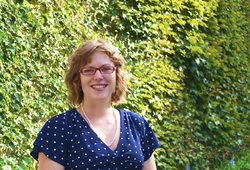
Melinda Gormley is a historian, researcher, writer, and educator. She is the Assistant Director for Research at the University of Notre Dame’s Reilly Center for Science, Technology, and Values, which oversees educational and research programs focused on the impacts of science and technology in society. Melinda works on grant development, specifically looking for ways to increase research and education into the ethical and policy implications of science and technology. She promotes research integrity, which applies to both the responsible conduct of scientists and engineers in the workplace and during their interactions with the public and policymakers. She provides professional development training to graduate and undergraduate students and seeks ways to improve communication between academic scholars and the public.
Working at an academic center in a non-teaching job has its benefits according to Melinda. She attends academic conferences, lectures, and colloquia and has full privileges at a university library. Yet, she is not within the tenure system. “I’m not obligated to write for my peers and this has opened a range of options.” As a 2012 fellow of the To Think, To Write, To Publish program she cultivated her ability to write creative nonfiction. TTTWTP is funded by the National Science Foundation and offered by David Guston and Lee Gutkind of Arizona State University’s Consortium for Science Policy and Outcomes. “By writing Creative Nonfiction, I hope to produce something entertaining enough to keep people reading from beginning to end and in the process teach them something about science and history.”
Melinda received her Ph.D. from Oregon State University in 2006. She spent four years teaching at four different universities before starting her current job at University of Notre Dame.
Working at an academic center in a non-teaching job has its benefits according to Melinda. She attends academic conferences, lectures, and colloquia and has full privileges at a university library. Yet, she is not within the tenure system. “I’m not obligated to write for my peers and this has opened a range of options.” As a 2012 fellow of the To Think, To Write, To Publish program she cultivated her ability to write creative nonfiction. TTTWTP is funded by the National Science Foundation and offered by David Guston and Lee Gutkind of Arizona State University’s Consortium for Science Policy and Outcomes. “By writing Creative Nonfiction, I hope to produce something entertaining enough to keep people reading from beginning to end and in the process teach them something about science and history.”
Melinda received her Ph.D. from Oregon State University in 2006. She spent four years teaching at four different universities before starting her current job at University of Notre Dame.
Dr. Gina Rumore
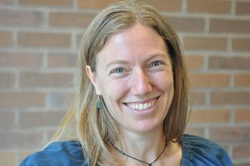
Gina Rumore is the Program Development Coordinator at the Minnesota Population Center (MPC) at the University of Minnesota (UMN). This position allows her to use many of her favorite skills to help the Center’s research staff and faculty members pursue external research grants and to publish their substantive research in top-tier demographic journals. About twenty percent of her time is spent coordinating the Center’s infrastructure grants (mainly NIH R01s and standard NSF grants), which involves making sure all the pieces are in place, the grants are cogently argued, cleanly edited and all deadlines are met. In addition she runs several writing-support programs for staff and faculty researchers, oversees the MPC Seminar Series, helps coordinate the University’s Population Studies Minor, writes press releases, and edits the MPC Newsletter and working paper series.
After finishing her Ph.D. in the History of Science and Technology (University of Minnesota, 2009), Gina spent two years as an NSF-funded post-doc in Ecology, Evolution and Behavior, working on a history of the NSF’s Long-Term Ecological Research Network, and then a year as a lecturer in the History of Science, Technology and Medicine Program at the University of Minnesota. During this time she also worked as a free-lance grant writer and as a science writer for the University’s Office of Technology Commercialization. In applying for her current position, Rumore realized the incredibly broad skill sets she had developed during her graduate student and post-doc years and the value of these skills beyond faculty-type positions.
Gina very much loves the intellectual stimulation of working in an interdisciplinary research environment. And one awesome advantage she has found in staying within the university system is that her employers greatly value professional development; she has been able to negotiate travel funds and paid time to continue to pursue her research and writing on the history of twentieth century American ecology.
